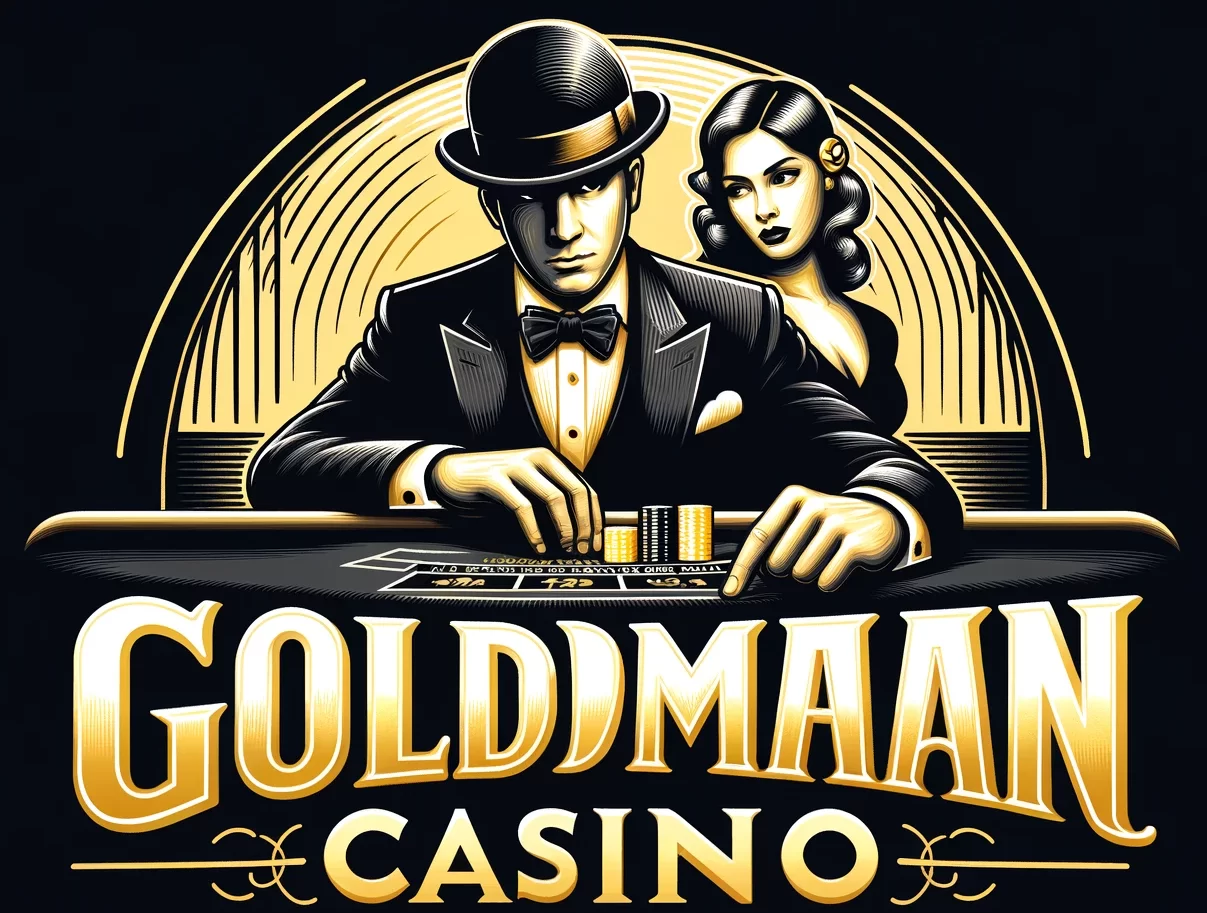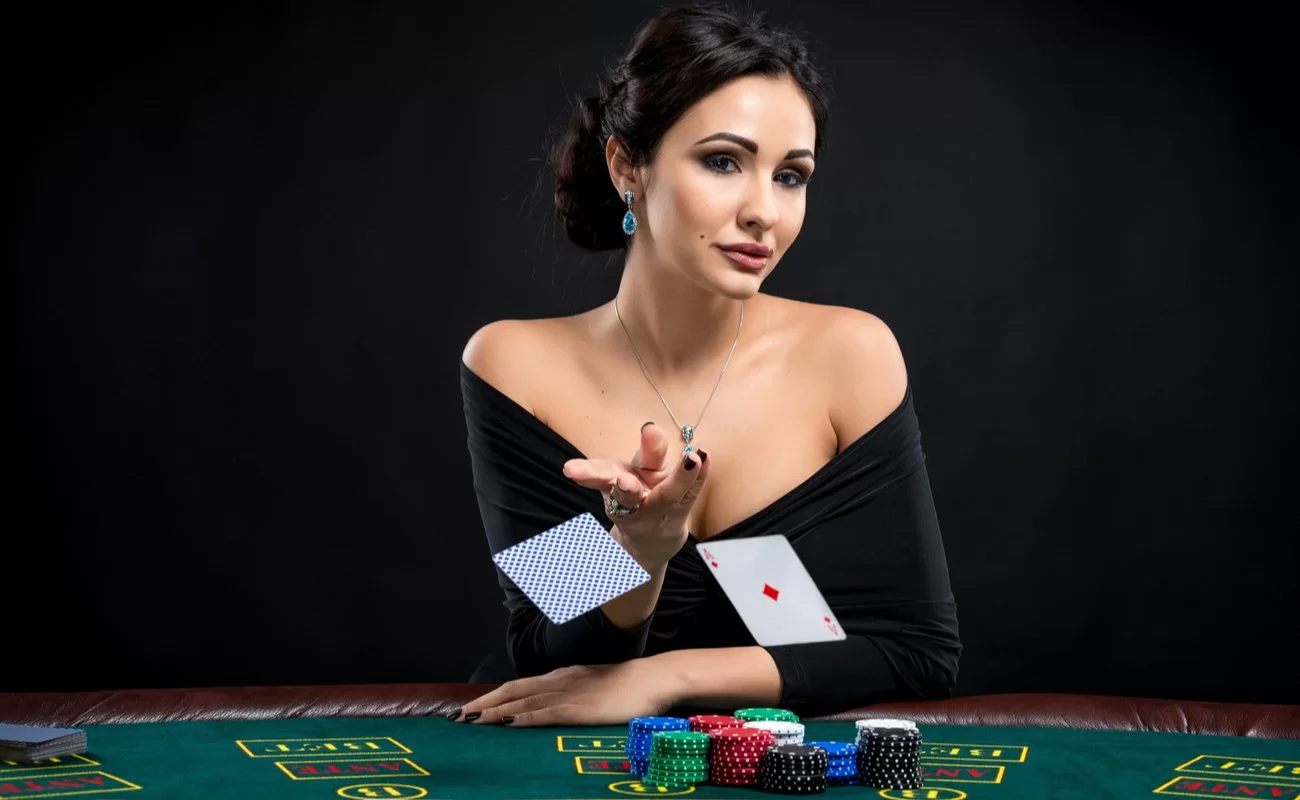-
Goldman Casino Gambling Info Treasure Trove
- Introduction
- How to Use Game Theory to Win at Roulette
- Exploring the Benefits of Applying Game Theory to Roulette
- Analyzing the Different Strategies of Game Theory Roulette
- Examining the Impact of Probability on Game Theory Roulette
- Understanding the Mathematics Behind Game Theory Roulette
- Exploring the Psychology of Game Theory Roulette
- Investigating the History of Game Theory Roulette
- Examining the Popularity of Game Theory Roulette Around the World
- Analyzing the Advantages and Disadvantages of Playing Game Theory Roulette
- Exploring the Role of Luck in Game Theory Roulette
- Comparing Different Variations of Game Theory Roulette
- Exploring the Benefits of Online vs Offline Game Theory Roulette
- Investigating the Role of Artificial Intelligence in Game Theory Roulette
- Q&A
- Conclusion
“Win Big with Game Theory Roulette – Your Best Bet for Maximum Profit!”
Introduction
Game Theory Roulette is a game of chance and strategy that has been around for centuries. It is a game of luck, skill, and probability. Players must make decisions based on the probabilities of the wheel and the odds of winning. The goal of the game is to maximize your winnings while minimizing your losses. Game Theory Roulette is a great way to test your skills in probability and decision making. It can be played both online and in person, making it an exciting and engaging game for all ages.
How to Use Game Theory to Win at Roulette
Roulette is a popular casino game that has been around for centuries. It is a game of chance, but it can also be played strategically. Game theory can be used to increase your chances of winning at roulette.
Game theory is the study of strategic decision making. It is based on the idea that players will make decisions that maximize their chances of winning. By understanding the principles of game theory, you can use them to your advantage when playing roulette.
The first step in using game theory to win at roulette is to understand the odds. Roulette is a game of chance, so the odds are always in favor of the house. However, there are certain strategies you can use to increase your chances of winning. For example, you can bet on specific numbers or combinations of numbers that have a higher probability of coming up. You can also bet on red or black, odd or even, and high or low numbers.
Another important factor to consider when using game theory to win at roulette is the size of your bets. You should always bet within your means and never bet more than you can afford to lose. Betting too much can lead to large losses and ruin your chances of winning in the long run.
Finally, it’s important to remember that no strategy is foolproof and there is no guarantee that you will win every time you play roulette. However, by understanding the principles of game theory and using them strategically, you can increase your chances of winning and have more fun while playing roulette.
Exploring the Benefits of Applying Game Theory to Roulette
Game theory is a powerful tool that can be applied to many different areas of life, including gambling. Roulette is one of the most popular casino games and has been around for centuries. Applying game theory to roulette can help players make more informed decisions and increase their chances of winning.
Game theory is a branch of mathematics that studies strategic decision-making in situations where multiple players are involved. It looks at how each player’s decisions affect the outcome of the game. By understanding the strategies and tactics used by other players, a player can make better decisions and increase their chances of winning.
When applied to roulette, game theory can help players identify patterns in the game and develop strategies to maximize their chances of success. For example, players can use game theory to determine which bets are more likely to pay off and which ones are less likely to do so. This information can then be used to inform betting decisions and increase the likelihood of winning.
Game theory can also be used to analyze the house edge in roulette. The house edge is the advantage that the casino has over the player in any given game. By understanding how this works, players can make more informed decisions about which bets they should place and which ones they should avoid. This knowledge can help them reduce their losses and increase their winnings over time.
Finally, game theory can be used to identify potential opportunities for exploiting weaknesses in the game. By understanding how certain strategies work, players may be able to find ways to gain an edge over other players or even the house itself. This could lead to increased profits over time.
In conclusion, applying game theory to roulette can be a great way for players to improve their chances of success. By understanding how other players are making decisions and analyzing the house edge, players can make more informed decisions and increase their chances of winning in the long run.
Analyzing the Different Strategies of Game Theory Roulette
Game theory is a branch of mathematics that studies strategic decision making. It has been applied to many different fields, including economics, politics, and even gambling. Roulette is one of the most popular casino games and it has been studied extensively using game theory. In this article, we will discuss the different strategies of game theory roulette and how they can be used to increase your chances of winning.
The most basic strategy of game theory roulette is the Martingale system. This system involves doubling your bet after each loss until you eventually win. The idea behind this strategy is that you will eventually win and recoup all of your losses plus a profit. While this strategy can be effective in the short term, it can be risky in the long run as you may end up betting more than you can afford to lose.
Another popular strategy is the Paroli system. This system involves increasing your bet after each win instead of after each loss. The idea behind this strategy is that you will capitalize on winning streaks and minimize losses during losing streaks. While this strategy can be effective in the short term, it can also be risky in the long run as you may end up betting more than you can afford to lose.
The Labouchere system is another popular strategy for game theory roulette. This system involves setting a goal for yourself and then betting an amount that will get you closer to that goal with each win or loss. The idea behind this strategy is that you will eventually reach your goal without risking too much money in the process. While this strategy can be effective in the short term, it can also be risky in the long run as you may end up betting more than you can afford to lose.
Finally, there is the D’Alembert system which involves increasing or decreasing your bet by one unit after each win or loss respectively. The idea behind this strategy is that it will help balance out wins and losses over time so that you don’t risk too much money at any given time. While this strategy can be effective in the short term, it can also be risky in the long run as you may end up betting more than you can afford to lose.
In conclusion, there are several different strategies for game theory roulette that players can use to increase their chances of winning. Each strategy has its own advantages and disadvantages so it’s important to understand them before deciding which one to use. Ultimately, it’s up to each individual player to decide which strategy works best for them based on their own risk tolerance and goals.
Examining the Impact of Probability on Game Theory Roulette
Game theory is a branch of mathematics that studies the strategic interactions between two or more players in a given situation. It is used to analyze decision-making in situations where the outcome of one player’s decision affects the outcome of another player’s decision. One of the most popular applications of game theory is in the game of roulette. Roulette is a game of chance, and probability plays an important role in determining the outcome of each spin.
In roulette, each spin of the wheel has an equal probability of landing on any number from 0 to 36. This means that no matter what number you bet on, your chances of winning are always the same. However, this does not mean that all bets are equally profitable. The house edge, which is the difference between the true odds and the payout odds, determines how much money you can expect to win or lose over time. The house edge for roulette is 5.26%, meaning that for every $100 you bet, you can expect to lose $5.26 on average.
The concept of probability also affects game theory strategies for roulette. For example, if you are playing a game with two players and one player has a higher probability of winning than the other, then it may be beneficial for them to take more risks in order to maximize their chances of winning. On the other hand, if both players have an equal probability of winning, then it may be better for them to play more conservatively in order to minimize their losses.
In conclusion, probability plays an important role in game theory strategies for roulette. By understanding how probability affects outcomes and by taking into account the house edge when making decisions, players can increase their chances of winning and minimize their losses over time.
Understanding the Mathematics Behind Game Theory Roulette
Game theory roulette is a mathematical game that involves predicting the outcome of a roulette wheel spin. It is based on the principles of probability and game theory, which are used to determine the best possible strategy for a given situation. The goal of game theory roulette is to maximize one’s chances of winning by making the most informed decisions possible.
At its core, game theory roulette is based on the concept of expected value. This is a measure of how much money one can expect to win or lose in a given situation. In roulette, this expected value is determined by multiplying the probability of each outcome by its corresponding payout. For example, if the probability of winning on a single number bet is 1/37, then the expected value would be 37 times the payout for that bet.
The key to success in game theory roulette is understanding how to calculate expected value and use it to make informed decisions. To do this, one must first understand the different types of bets available in roulette and their associated payouts. These include inside bets (such as straight-up, split, corner, street, and six-line), outside bets (such as red/black, odd/even, high/low), and special bets (such as column and dozen). Once these payouts are known, one can calculate the expected value for each bet by multiplying its probability by its payout.
Once expected values have been calculated for each bet type, one can then use them to determine which bets offer the highest expected return. This can be done by comparing the expected values for each bet type and selecting those with the highest returns. Additionally, one can also use game theory techniques such as minimaxing or maximinizing to further refine their decision-making process.
By understanding the mathematics behind game theory roulette and using it to make informed decisions, players can increase their chances of winning significantly. With practice and experience, players can become adept at calculating expected values and using them to make optimal decisions in any given situation.
Exploring the Psychology of Game Theory Roulette
Game theory is a branch of mathematics that studies the strategic interactions between two or more players in a given situation. It has been used to analyze a wide range of topics, from economics to politics to psychology. One particular area of game theory that has been studied extensively is the game of roulette. Roulette is a game of chance in which players bet on which number will be spun on a wheel.
The psychology of game theory roulette is an interesting topic to explore. It involves understanding how players make decisions and how those decisions affect their chances of winning or losing. In roulette, players must decide whether to bet on a single number, multiple numbers, or a combination of numbers. They must also decide how much to bet and when to stop betting. These decisions can have a significant impact on the outcome of the game.
One important factor in the psychology of game theory roulette is risk aversion. Risk aversion refers to the tendency for people to avoid taking risks when making decisions. This means that players may be more likely to bet on safer bets such as betting on multiple numbers or combinations rather than betting on single numbers. This can lead to players making more conservative bets and thus reducing their chances of winning big payouts.
Another factor in the psychology of game theory roulette is the concept of expected value. Expected value refers to the average amount that a player can expect to win or lose based on their current bet size and probability of winning or losing. Players who understand expected value are better able to make informed decisions about when and how much to bet, which can increase their chances of winning or reduce their losses.
Finally, the psychology of game theory roulette also involves understanding how players react emotionally when they win or lose. Players may become overly excited when they win and overly discouraged when they lose, which can lead them to make irrational decisions that can cost them money in the long run. Understanding these emotional reactions can help players make better decisions and improve their overall success rate at roulette.
Overall, understanding the psychology behind game theory roulette can help players make better decisions and increase their chances of winning big payouts. By understanding risk aversion, expected value, and emotional reactions, players can gain an edge over other players and increase their chances of success at this popular casino game.
Investigating the History of Game Theory Roulette
Game theory roulette is a type of gambling game that has been around for centuries. It is based on the mathematical principles of game theory, which is the study of strategic decision-making. The game is played with a wheel, a ball, and a betting table. Players place their bets on the table and then spin the wheel to determine the outcome.
The earliest known reference to game theory roulette dates back to 1655 in France. At this time, it was known as “Roulette de Fer” or “Iron Roulette” and was played in gambling houses. The game was popular among the French aristocracy and was seen as a way to pass the time while enjoying some friendly competition.
In 1842, French mathematician Blaise Pascal developed a version of roulette that used mathematical principles to determine the outcome of each spin. This version of the game became known as “Pascal’s Roulette” and was widely adopted by casinos around Europe.
In the early 20th century, American mathematician John von Neumann developed a version of roulette that used game theory principles to determine the outcome of each spin. This version of the game became known as “von Neumann’s Roulette” and was adopted by casinos in Las Vegas and other parts of the United States.
Today, game theory roulette is still popular in casinos around the world. It is an exciting game that combines luck with strategy and can be enjoyed by players of all skill levels. While it may not be as popular as other casino games such as blackjack or poker, it remains an important part of gambling culture and continues to be enjoyed by millions of people every year.
Examining the Popularity of Game Theory Roulette Around the World
Game theory roulette has become increasingly popular around the world in recent years. This game is based on the mathematical principles of game theory, which is a branch of mathematics that studies strategic decision-making. It is a simple yet exciting game that can be played by two or more players.
In game theory roulette, each player places a bet on a number between 0 and 36. The wheel is then spun and the ball lands on one of the numbers. The player who placed the bet on that number wins the round. The game is easy to learn and can be played with minimal equipment, making it an ideal choice for those looking for an entertaining way to pass the time.
The popularity of game theory roulette has grown significantly in recent years due to its simplicity and accessibility. It can be found in casinos, online gaming sites, and even in some bars and pubs. It has also become popular among students as a way to practice their skills in probability and decision-making.
The popularity of game theory roulette has also been boosted by its use in television shows and movies. For example, it was featured prominently in the hit movie “21” starring Kevin Spacey and Jim Sturgess. This movie helped to bring the game into mainstream culture and made it more accessible to people who may not have been familiar with it before.
Game theory roulette is now enjoyed by people from all walks of life around the world. Its popularity continues to grow as more people discover its simple yet exciting gameplay. Whether you are looking for an entertaining way to pass the time or you are interested in learning more about probability and decision-making, game theory roulette is sure to provide hours of fun for everyone involved.
Analyzing the Advantages and Disadvantages of Playing Game Theory Roulette
Game Theory Roulette is a popular game that has been around for many years. It is a game of chance that involves predicting the outcome of a roulette wheel spin. Players can bet on any number, color, or combination of numbers and colors. While the game is exciting and can be quite lucrative, there are both advantages and disadvantages to playing Game Theory Roulette.
Advantages
One of the main advantages of playing Game Theory Roulette is that it is a relatively low-risk game. The odds of winning are not as high as other casino games, but they are still better than most other forms of gambling. Additionally, the game is relatively easy to learn and understand, making it accessible to players of all skill levels. Furthermore, the game can be played with minimal investment, allowing players to enjoy the thrill without risking too much money.
Disadvantages
The main disadvantage of playing Game Theory Roulette is that it can be quite unpredictable. The outcome of each spin is completely random and cannot be predicted with any degree of accuracy. This means that players may end up losing more money than they initially invested in the game. Additionally, since the game relies heavily on luck, it can be difficult to develop any sort of strategy or system for increasing one’s chances of winning. Finally, since the game relies on chance, it can be difficult to maintain focus and concentration during long gaming sessions.
Overall, while Game Theory Roulette can be an exciting and potentially lucrative form of gambling, it also carries certain risks and drawbacks that should be taken into consideration before playing.
Exploring the Role of Luck in Game Theory Roulette
Game theory is a branch of mathematics that studies strategic decision-making in situations where the outcome of a decision depends on the decisions of other players. Roulette is a classic example of a game of chance that can be studied using game theory. In this article, we will explore the role of luck in game theory roulette and how it affects the outcome of the game.
Roulette is a game of chance in which players bet on which number or color will come up when a spinning wheel is spun. The wheel contains either 37 or 38 numbered slots, depending on the type of roulette being played. Players can bet on any number or color they choose, and if their bet wins, they receive a payout based on the odds associated with their bet.
In game theory roulette, players must make decisions based on their understanding of probability and expected value. This means that they must consider not only the likelihood that their chosen number or color will come up, but also the expected payout for each bet. Players must also consider how their decisions will affect other players’ decisions and how those decisions will affect their own chances of winning.
Luck plays an important role in game theory roulette because it affects the outcome of each spin. Even if players make optimal decisions based on probability and expected value, luck can still determine whether they win or lose. For example, if two players both make optimal bets but one player gets lucky and wins while the other loses, then luck has played a role in determining the outcome.
In conclusion, luck plays an important role in game theory roulette because it affects the outcome of each spin. Players must take this into account when making decisions and consider how their choices will affect their chances of winning or losing. By understanding how luck works in game theory roulette, players can better understand how to maximize their chances of success and minimize their losses.
Comparing Different Variations of Game Theory Roulette
Game theory roulette is a popular game of chance that has been around for centuries. It is a game of luck and strategy, and there are many variations of the game. In this article, we will discuss the different variations of game theory roulette and how they differ from one another.
The most common variation of game theory roulette is the European version. This version uses a single zero wheel, meaning that there are 37 numbers on the wheel. The house edge in this version is 2.7%, making it one of the lowest house edges in any casino game. Players can bet on any number or combination of numbers, as well as on red or black, odd or even, and high or low.
The American version of game theory roulette is similar to the European version but with an extra number on the wheel – the double zero. This increases the house edge to 5.26%, making it one of the highest house edges in any casino game. Players can still bet on any number or combination of numbers, as well as on red or black, odd or even, and high or low.
The French version of game theory roulette is similar to the European version but with two additional rules – La Partage and En Prison. La Partage allows players to receive half their bet back if they lose on an even-money bet when the ball lands on zero. En Prison allows players to keep their bet for another spin if they lose on an even-money bet when the ball lands on zero. These two rules reduce the house edge to 1.35%, making it one of the lowest house edges in any casino game.
Finally, there is a variation called “mini” roulette which uses a smaller wheel with only 13 numbers (0-12). This reduces the house edge to 3.85%, making it one of the lowest house edges in any casino game. Players can still bet on any number or combination of numbers, as well as on red or black, odd or even, and high or low.
In conclusion, there are several variations of game theory roulette available for players to choose from depending on their preference and budget. Each variation has its own unique set of rules and house edge which can affect how much money a player can win or lose in a single session. It is important for players to understand these differences before playing so that they can make an informed decision about which variation best suits their needs and budget.
Exploring the Benefits of Online vs Offline Game Theory Roulette
Game theory roulette is a popular game that has been around for centuries. It is a game of chance and strategy, and it can be played both online and offline. Each version of the game has its own unique advantages and disadvantages, so it is important to understand the differences between the two before deciding which one to play.
Online game theory roulette offers players the convenience of playing from anywhere with an internet connection. Players can access the game from their computer or mobile device, allowing them to play at any time of day or night. Additionally, online roulette games often offer bonuses and promotions that can help players increase their winnings. However, there are some drawbacks to playing online roulette. The random number generator used in online games may not be as reliable as those used in land-based casinos, and players may not have access to the same level of customer service as they would in a physical casino.
Offline game theory roulette offers players a more traditional experience. Players can visit a land-based casino or gaming hall to play the game in person. This allows them to interact with other players and get a feel for the atmosphere of a real casino. Additionally, offline roulette games often have higher payouts than online versions due to lower overhead costs associated with running a physical establishment. However, playing offline requires more effort on the part of the player since they must travel to a physical location to play the game.
In conclusion, both online and offline versions of game theory roulette offer unique advantages and disadvantages that should be considered when deciding which version to play. Online games offer convenience and bonuses while offline games provide a more traditional experience with higher payouts. Ultimately, it is up to each individual player to decide which version best suits their needs and preferences.
Investigating the Role of Artificial Intelligence in Game Theory Roulette
The use of artificial intelligence (AI) in game theory roulette has been a topic of increasing interest in recent years. AI has the potential to revolutionize the way we play and interact with games, and roulette is no exception. By leveraging AI, players can gain an edge over their opponents by using sophisticated algorithms to analyze the game and make decisions based on probability.
At its core, game theory roulette is a game of chance. Players place bets on where the ball will land on the wheel, and the outcome is determined by random chance. However, AI can be used to improve a player’s chances of winning by analyzing past outcomes and predicting future ones. AI can also be used to identify patterns in the data that may indicate when certain numbers are more likely to come up than others. This information can then be used to inform a player’s betting strategy.
AI can also be used to create more complex strategies for playing roulette. For example, AI can be used to develop strategies that take into account multiple variables such as the number of players, the size of the bet, and the probability of each outcome. By combining these variables, AI can create strategies that are tailored to each individual player’s preferences and goals.
In addition to helping players make better decisions, AI can also be used to automate certain aspects of roulette play. For instance, AI can be used to automate betting decisions based on pre-defined criteria or even generate random numbers for each spin of the wheel. This automation can help reduce human error and increase accuracy in predicting outcomes.
Overall, AI has great potential for improving game theory roulette play. By leveraging sophisticated algorithms and automation, players can gain an edge over their opponents and increase their chances of winning. As technology continues to advance, it is likely that AI will become an increasingly important part of game theory roulette play in the future.
Q&A
1. What is game theory?
Game theory is the study of mathematical models of strategic interaction between rational decision-makers. It has applications in all fields of social science, as well as in logic, systems science and computer science.
2. What is the Nash equilibrium?
The Nash equilibrium is a solution concept of game theory where each player’s strategy is optimal given the strategies of the other players, and no player has an incentive to change their strategy.
3. How does game theory apply to roulette?
Game theory can be used to analyze the strategies that players use when playing roulette. By understanding the different strategies that players use, it can help to identify which strategies are more successful than others and how to maximize profits or minimize losses when playing roulette.
4. What is the expected value in roulette?
The expected value in roulette is the average amount that a player can expect to win or lose over a large number of spins. It is calculated by multiplying the probability of winning by the amount won and subtracting the probability of losing multiplied by the amount lost.
5. What are some common betting strategies for roulette?
Some common betting strategies for roulette include Martingale, Labouchere, D’Alembert, Fibonacci, and Paroli systems. Each system has its own advantages and disadvantages, so it’s important to understand them before deciding which one to use.
6. What is a Martingale system?
A Martingale system is a betting strategy where a player doubles their bet after each loss in order to recoup their losses and eventually make a profit. This system can be risky because if a player loses too many times in a row they could end up with large losses.
7. What is a Labouchere system?
A Labouchere system is a betting strategy where a player sets up a sequence of numbers and bets an amount equal to the sum of the first and last numbers in the sequence after each spin. If they win, they cross off those two numbers from the sequence; if they lose, they add their bet amount to the end of the sequence.
8. What is a D’Alembert system?
A D’Alembert system is a betting strategy where a player increases their bet by one unit after each loss and decreases it by one unit after each win. This system can be used to minimize losses while still having potential for profit if luck goes your way.
9. What is a Fibonacci system?
A Fibonacci system is a betting strategy where a player increases their bet according to the Fibonacci sequence (1, 1, 2, 3, 5, 8, 13 etc.) after each loss and decreases it according to the same sequence after each win. This system can be used to minimize losses while still having potential for profit if luck goes your way.
10. What is a Paroli system?
A Paroli system is a betting strategy where a player doubles their bet after each win until they reach three consecutive wins at which point they reset their bet back to its original amount and start again from there if they continue winning or lose if they don’t win again on that spin. This system can be used to maximize profits while minimizing losses if luck goes your way for multiple spins in succession.
11. How do you calculate odds in roulette?
Odds in roulette are calculated by dividing the number of ways something can happen (e.g., red coming up) by the total number of possible outcomes (e.g., red or black). For example, if there are 18 red numbers on an American wheel then there are 18 ways for red to come up out of 38 possible outcomes so the odds would be 18/38 or 47%.
12. How do you calculate expected value in roulette?
Expected value in roulette is calculated by multiplying the probability of winning by the amount won and subtracting the probability of losing multiplied by the amount lost (EV = P(win)*amount won – P(lose)*amount lost). For example, if you were betting on red with odds of 47% then your expected value would be 0.47*$35 – 0.53*$1 = $16 –
Conclusion
Game Theory Roulette is an exciting and entertaining game that can be enjoyed by players of all ages. It is a great way to test your skills in strategy and probability, as well as to have some fun with friends. With its simple rules and easy-to-learn mechanics, it is a great game for anyone looking for a challenge. Whether you are playing with friends or against the computer, Game Theory Roulette is sure to provide hours of entertainment.











